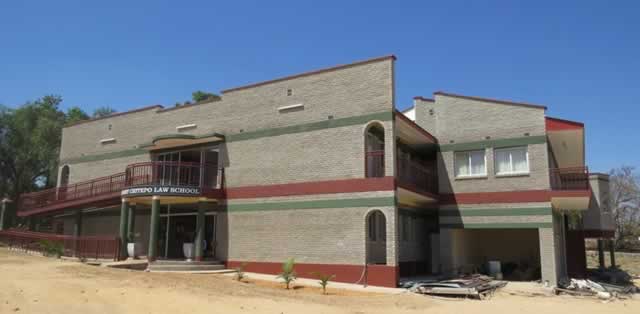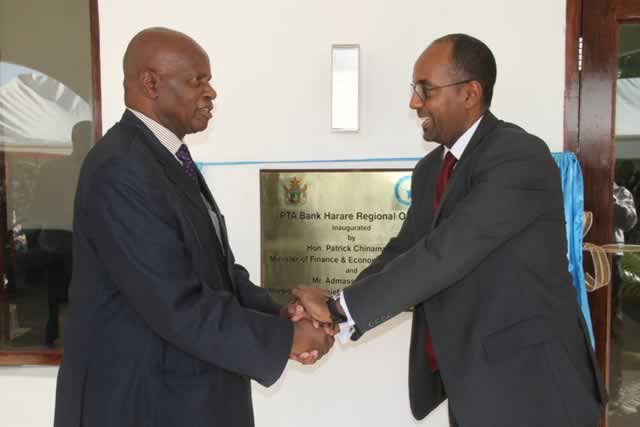Chitepo Law School: A history and celebration

Abel Dzobo Correspondent
The recent reopening of the Great Zimbabwe University was significant in a number of ways, being an academic milestone.
The christening of the institution after the country’s first black lawyer, Herbert Chitepo, though, carries immense symbolic value.
Chitepo was the famous legal representative of the late Vice President Simon Muzenda, who was arrested by colonial authorities after reciting Solomon Mutsvairo’s poem, Nehanda Nyakasikana.
According to veteran journalist Bill Saidi, Chitepo shocked the white bench, while defending the late national icon Simon Vengai Muzenda, that the charges were unfounded because the words of the poem were ipsissima verba (the very words verbatim).
“The whites were shocked for they were not expecting to hear that Latin phrase from a black man,” said Bill Saidi.
Furthermore, with one stroke of cunning, Chitepo swept the rug from under the Rhodesians’ feet when he opened the eastern frontier, Mozambique, for Zanla guerillas, which saw guerillas crossing into Zimbabwe in large numbers to prosecute the liberation war.
Born on June 5, 1923 at Bonda in Nyanga, Chitepo’s life is littered, or is it decorated, with firsts. He was the first African barrister at Gray’s Inn in England where that nation’s former president, Winston Churchill, had once worked. In 1954 Chitepo challenged the Land Apportionment Act, which barred all blacks from owning property, and succeeded, which saw him establishing his own law firm in the then Salisbury.
And it is the great nationalist that Great Zimbabwe University has named its law school after,” said Great Zimbabwe vice chancellor Prof Rungano Zvobgo.
“Advocate Chitepo was an eminent nationalist, who led the liberation war from Zambia. He was the first black lawyer in Zimbabwe, the first black lawyer to be admitted as a barrister in England, and the first Attorney-General of an independent Tanzania. He stood for democracy and justice. He is a household name in our national politics, so it was only proper that we name the law school after him. We sought permission from his family, which was granted and we are immensely grateful for that.
“We are proud to be associated with this huge name, it will help sell the image of the law school and give it the seriousness it deserves.”
He said the name Herbert Chitepo would inspire the quality of graduates from the law faculty to be conscious of their historical realities and the need to use law as a tool of emancipation.
“Our graduates will uphold the basic principles of human justice, democracy and rule of law which Chitepo stood for. It will help them foster the sense of responsibility to national good and social equality in their country. Every graduate will leave while pumped up with the nationalist spirit; commitment to the development of Zimbabwe and patriotism,” he said.
While others are of the view that with two universities (University of Zimbabwe and Midlands State University) already offering law degrees and that these should be enough, Prof Zvobgo is on a mission, that of reclaiming the sphere of culture to decolonise minds and decolonise law for culture is the site of struggle where colonialists concentrated most of their ammunition.
“Herbert Chitepo School of Law is not just a law school. It seeks to tie together the teaching, understanding and practice of law within the context of African culture. Law was used to subjugate the Africans, the violent dispossession of all Africans, in all areas of life. The land Apportionment Act of 1930 ensured that Africans were subjugated, African culture was dismissed,” he said.
And then Prof Zvobgo laid the gauntlet.
“Until we begin to transform the law; to understand it is the knife which cuts the bread, then we have not yet started using the law as an effective tool for human development and advancement,” he said.
Prof Zvobgo is of the belief that law should be a tool of liberation.
“Law can be a prison but can also be a liberating force. So we want a lawyer who is always asking, ‘What does it mean to be African’”.
The Dean of Hebert Chitepo School of Law School, Mr Victor Nkiwane, says that though they are training lawyers grounded in African culture, they won’t give any quarter as regards churning out graduates with great technical ability.
“We offer modules such as ‘Introduction to Zimbabwean Culture and Heritage’ and ‘African Philosophy and Thought’. We want a lawyer who understands the law within the African context.
“But this does not mean that we will neglect the technical aspect. We have a moot court where students will practice in a real court scenario.
“In fact, our curriculum has more practicals than any other law school in the country,” he said.
Prof Zvobgo concurred.
“Next year we are building a high court that will be used as a national court. We have subjected our curriculum to rigorous interrogation by the top legal brains in the country, as they sought to find its contribution to the legal landscape. Legal experts from the University of Zimbabwe, Council for legal Education, Zimche and Law Society of Zimbabwe, among others,” he said.
Prof Zvobgo then reiterated GZU’s drive to view the world through a cultural lense.
“The School of Heritage Studies is the creation of His Excellency President Mugabe. The function of education is to emphasise to children that they don’t have to stop being African, though they interact everyday with other cultures. If we don’t emphasise the importance of culture to children, then they will be lost,” he said.
Cultural Studies guru and Midlands State University lecturer, Dr Nhamo Mhiripiri, says that Chitepo was a man of his time and a man of the future.
“Chitepo, as a prominent lawyer and nationalist, was an eloquent speaker who put across his ideas passionately, clearly, a man of great precision and clarity. He was both a man of his time and a man of the future.
Dr Mhiripiri said that though the country had other prominent lawyers such as the late Edson Sithole and Edson Zvobgo, the late Chitepo, who wrote a riddle of a poem “Shoko risina musoro” was the most ideal candidate.
“GZU is steeped not only in academia but its flagship is culture and heritage. Chitepo is a lawyer who had cultural footing and creativity. His Shona poem ‘Shoko risina musoro’ up to now sparks debate, others saying it’s the height of creative genius, while others say it was madness. Also Great Zimbabwe monuments are the biggest point of imagination of our nation. So it is right for the lawyer-cum-artist Chitepo to provide a name to the law school,” said Dr Mhiripiri.
Law has won its converts, and Prof Zvobgo says that he himself has a soft spot for law.
“I have fallen in love with law. I lived around a man who exuded justice, my late brother Edson. My two sons have also graduated with law degrees. I know the value of law, especially in Zimbabwe where law needs to be reformed to address the entrenched colonial iniquities which subjected our people to both psychological, material and political terrorism,” he said.
Cde Chitepo died in Zambia on March 18 1975 when a car bomb planted in the garage of his Lusaka home exploded. He was buried in Zimbabwe on August 11, 1981.










Comments